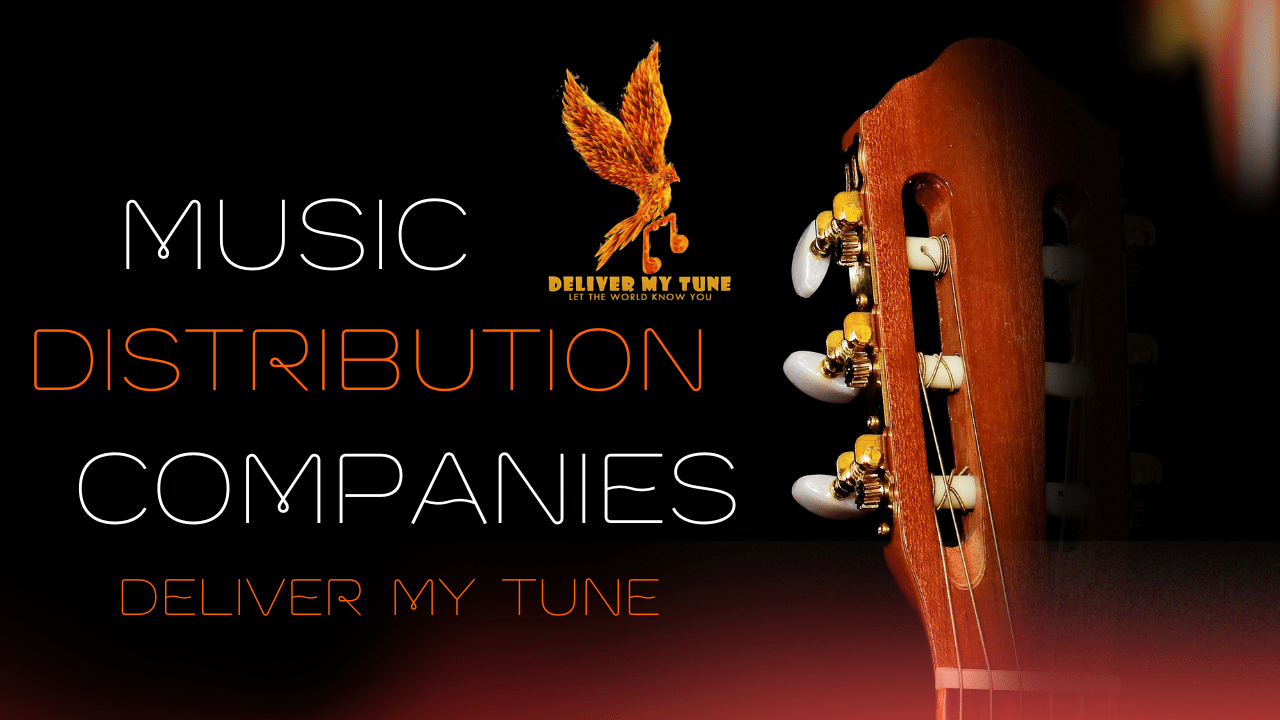The music industry has undergone a massive shift in recent years, especially for independent artists who are no longer solely dependent on traditional record labels. Thanks to digital technology, the internet, and streaming platforms, artists now have more control and greater reach to audiences worldwide. One of the most critical elements in this journey is finding the right music distribution company. In simple terms, these companies help bridge the gap between the music creator and the listener by getting music onto popular streaming platforms like Spotify, Apple Music, Amazon Music, and YouTube.
The question arises: Which music distribution company is right for you? Today’s blog will take you through the top 10 music distribution companies in 2024, each offering unique advantages and tailored services to help indie artists. From flat-rate pricing to extensive marketing services, we’ll break down the pros, cons, pricing structures, and specific features to help you make the best decision.
Understanding Music Distribution Companies
Before diving into the best companies, it’s essential to understand what music distribution actually entails. Traditionally, music distribution involved physical media like CDs and vinyl, requiring partnerships with major labels and distributors to get music into stores. Now, digital distribution makes it possible for artists at any level to reach a global audience directly.
Key Benefits of Digital Music Distribution
- Global Accessibility: Digital distributors can place your music on streaming services and digital stores around the world, ensuring that fans can find and stream your songs easily.
- Financial Opportunities: Proper distribution ensures you’re compensated for streams, downloads, and sales on various platforms.
- Increased Control: Artists now have more say in how their music is released, promoted, and marketed, often bypassing traditional label control.
- Time Efficiency: Distributors handle the technical process, allowing artists to focus on music creation.
Each digital music distribution company brings different features to the table. Some, like DistroKid, prioritize unlimited uploads, while others, like AWAL, focus on providing in-depth artist support and royalty management. By understanding your career goals, you can find a distribution service that best suits your needs.
Types of Music Distribution Companies
Music distribution companies come in various formats, each catering to specific artist needs and budget ranges. The three main categories are:
DIY (Do-It-Yourself) Platforms
These are designed for artists who want direct control over their music releases without a label. They offer simple interfaces where artists can upload their songs, cover art, and metadata directly. DIY platforms include:
- DistroKid
- TuneCore
- CD Baby
Label Services
Label services are designed for independent record labels and artists with large catalogs. They not only distribute music but also provide additional tools, including marketing and sync licensing opportunities. Examples include:
- Ditto Music
- LANDR
Full-Service Distributors
These companies provide a comprehensive suite of artist services, going beyond distribution to include marketing, licensing, and playlist pitching. Full-service distributors are selective, often only working with artists who have achieved some level of success. They include:
- AWAL
- UnitedMasters
Choosing a distribution service depends on your budget, experience level, and specific goals as an artist. Next, we’ll look at some of the top options in each category.
Top 10 Music Distribution Companies in 2024
Let’s dive into the top music distribution companies for 2024, covering what each offers, their pricing, and their unique features. Each company listed here has helped countless indie artists take control of their music distribution and reach a global audience.
1. DistroKid
Overview:
DistroKid is one of the most popular platforms for indie artists, known for its affordable subscription model that allows unlimited uploads. It’s ideal for artists who release music frequently and want a simple, efficient platform.
Key Features:
- Distributes to over 150 platforms, including Spotify, Apple Music, and YouTube
- Fast turnaround times with music typically available within 1-2 days
- Offers services for generating customizable artist profiles and direct access to Spotify Canvas features
Pricing:
Annual fees start at $19.99 for a single artist, with options for bands and labels at higher price points.
Pros:
- Extremely cost-effective for frequent releases
- Quick distribution turnaround
- Additional add-ons like lyrics sync, YouTube Content ID, and Spotify verified artist tools
Cons:
- Customer support can be slow due to high user volume
- Add-on services (like Shazam listing) come with additional fees
DistroKid’s unlimited release model and ease of use make it a popular choice among indie artists. However, add-ons can increase costs, so artists should evaluate their needs carefully.
2. TuneCore
Overview:
Unlike DistroKid’s subscription model, TuneCore charges per release, which might work better for artists with a small number of releases. TuneCore offers powerful analytics and provides distribution to all major streaming platforms.
Key Features:
- Distributes to over 150 digital stores and streaming services
- Offers detailed trend reports and streaming analytics to help artists understand their audience
- Provides social media tools and content promotion add-ons
Pricing:
Singles cost $9.99 per release, and albums cost $29.99 per release, renewed annually. TuneCore also offers plans for social media management.
Pros:
- Transparent pricing with no hidden costs
- Extensive analytics and audience insights
Cons:
- Per-release fee can add up if you release music frequently
- Limited to distribution and promotion, with fewer artist support services
TuneCore’s pay-per-release model is ideal for artists who focus on quality over quantity, releasing music less frequently but looking for comprehensive analytics and promotional tools.
3. CD Baby
Overview:
A pioneer in digital distribution, CD Baby has been around for over two decades, and it offers a straightforward, artist-friendly distribution service with a one-time fee per release.
Key Features:
- One-time fee for distribution, no recurring payments
- Distributes to over 150 platforms, including social media monetization on platforms like Facebook and Instagram
- Offers sync licensing options for film, TV, and other media placements
Pricing:
Starts at $9.95 for singles and $29 for albums, making it a one-time fee rather than a subscription model.
Pros:
- No recurring fees make it budget-friendly
- Includes sync licensing and YouTube monetization
Cons:
- Slower distribution times, usually 3-5 days
- Less extensive playlist and promotional options compared to competitors
CD Baby’s one-time fee structure is ideal for artists with limited budgets who don’t want to worry about recurring payments.
4. AWAL (Artists Without a Label)
Overview:
AWAL, now part of Kobalt Music, is a premium option for artists seeking more than just distribution. AWAL combines advanced analytics, marketing services, and direct support, making it a great choice for established indie artists.
Key Features:
- Selective entry with an application-based approach for artist quality control
- Sync licensing, playlist pitching, and marketing support
- Advanced analytics, similar to a traditional record label
Pricing:
AWAL operates on a royalty-share basis rather than charging fees upfront.
Pros:
- Exceptional support and premium services for successful indie artists
- Strong connections for playlist placements and sync licensing
Cons:
- Highly selective; not all artists are accepted
- Earnings split may reduce take-home revenue
AWAL’s comprehensive services are ideal for artists ready to scale up their career and reach a broader audience. It’s more than just a distributor, offering a full-service approach for established musicians.
5. Ditto Music
Overview:
Ditto Music is known for offering tools beyond distribution, making it a suitable choice for both solo artists and independent labels.
Key Features:
- Annual subscription allows for unlimited distribution
- Playlist promotion tools, social media integrations, and royalty collection
- Options for labels managing multiple artists and releases
Pricing:
Starts at $19 per year for a single artist, with plans for labels available at higher rates.
Pros:
- Good for both solo artists and indie labels
- Provides additional tools like playlist pitching and chart registration
Cons:
- Customer service issues reported by some users
- Higher-tier services come with increased fees
Ditto Music is a powerful platform for small labels or independent artists looking to maintain control over their distribution and promotion. However, customer service improvements could further enhance the user experience.
6. UnitedMasters
Overview:
UnitedMasters combines music distribution with a focus on brand partnerships and fan engagement, helping artists monetize beyond streaming income.
Key Features:
- Access to sync licensing opportunities and brand partnerships
- Free distribution tier, with a premium subscription available for additional benefits
- User-friendly app for managing music, social media, and analytics on the go
Pricing:
Free with a 10% revenue share or $5 per month for the premium tier.
Pros:
- Brand partnerships with companies like NBA
- Sync licensing opportunities with various media
Cons:
- Lower revenue share in the free version
- Limited customer support for free users
UnitedMasters is a suitable choice for artists interested in brand-building and partnership opportunities, especially for those who want to retain control over their music career.
7. LANDR
Overview:
Originally a mastering service, LANDR now offers music distribution, making it a one-stop solution for independent artists looking to manage their entire production and distribution pipeline.
Key Features:
- AI-driven mastering services included in subscription plans
- Collaboration tools for remote projects
- Sync licensing and playlist submission services
Pricing:
Starts at $12 per month, with mastering and distribution included.
Pros:
- Comprehensive service combining mastering, distribution, and promotion
- Professional-quality mastering that’s ideal for artists who need production assistance
Cons:
- Higher cost for basic distribution compared to other platforms
- Limited promotional tools for playlist placements
LANDR’s distribution model works well for artists looking for high-quality production and an integrated service, although it comes at a higher price point.
8. Amuse
Overview:
Amuse offers both free and paid distribution options. Its free tier makes it accessible to artists on a budget, and its Pro tier offers faster release times and premium support.
Key Features:
- Free distribution option for beginners
- Artist discovery feature that offers potential record label opportunities
- FastTrack feature for quick releases on the Pro plan
Pricing:
Free or $59.99 per year for Amuse Pro.
Pros:
- Free distribution for beginners
- Opportunities for artist discovery and potential label signing
Cons:
- Limited features on the free plan
- Customer support can be slow
Amuse’s flexibility with a free plan and premium features make it suitable for emerging artists, particularly those exploring distribution without committing to high costs.
9.ReverbNation
Overview:
ReverbNation focuses on building a fanbase, offering tools for direct engagement, gig opportunities, and contests.
Key Features:
- Direct-to-fan music sales and fan engagement tools
- Promotion and networking features that help artists get noticed
- Exclusive opportunities for live gigs, festivals, and contests
Pricing:
Starts at $19.95 per month, with options for premium services.
Pros:
- Excellent for live show-focused artists
- Strong fan engagement and direct sales options
Cons:
- High monthly fee for simple distribution
- Limited global reach compared to larger distributors
ReverbNation is perfect for artists focusing on live performances and fan interaction, though it may not be ideal for artists solely looking for digital distribution.
10.Deliver My Tune
Overview:
Deliver My Tune is an India-based distribution platform with a focus on affordability and support. It offers additional services like AI mastering and social media management, making it a comprehensive solution for artists looking to build a fanbase.
Key Features:
- Offers music distribution to over 100+ platforms with a single lifetime fee
- AI mastering for polished sound
- Social media management and profile linking for enhanced digital presence
Pricing:
Starts at ₹1999 for single artist distribution with no recurring charges.
Pros:
- Affordable with no recurring fees
- Additional services like social media management and AI mastering
Cons:
- Limited reach beyond Indian platforms
- Some premium features require higher-tier plans
Deliver My Tune provides an affordable and artist-focused solution, especially suitable for independent musicians in India or those looking for a low-cost entry into digital music distribution.
How to Choose the Right Music Distribution Company
Finding the right music distribution company is crucial for maximizing your music’s reach and impact. Here’s a checklist to guide your decision:
- Budget: Choose a distributor that fits your budget and release frequency.
- Reach and Platforms: Evaluate which streaming platforms and regions the distributor covers.
- Additional Services: Consider if you need extras like playlist pitching, sync licensing, or artist branding.
- Revenue Share or Subscription: Weigh up a subscription model against a revenue-sharing model.
- Customer Support: Quality customer support can be invaluable, especially if issues arise with platform releases.
Conclusion
The right music distribution company will open doors for independent artists, enabling them to share their music with the world. Whether you prioritize cost-effectiveness, comprehensive services, or artist support, there’s a platform tailored to meet your needs. From DistroKid’s simple model to AWAL’s full-service approach, each of the companies listed offers unique benefits that cater to specific artist needs.
Choose a platform that aligns with your career goals and budget to take your music to new heights.
Related Articles:
For further reading, explore these related articles:
- How to Be a Musician Along with a Day Job
- How Beneficial are Corpus Funds for Indian Musicians?
- New avenues COVID-19 opened to upcoming singers and musicians!
For additional resources on music marketing and distribution, visit Deliver My Tune.






